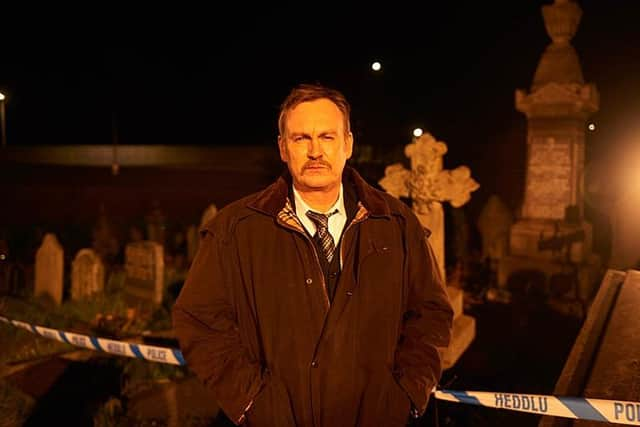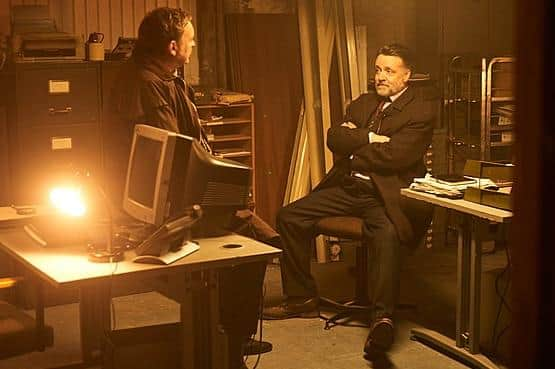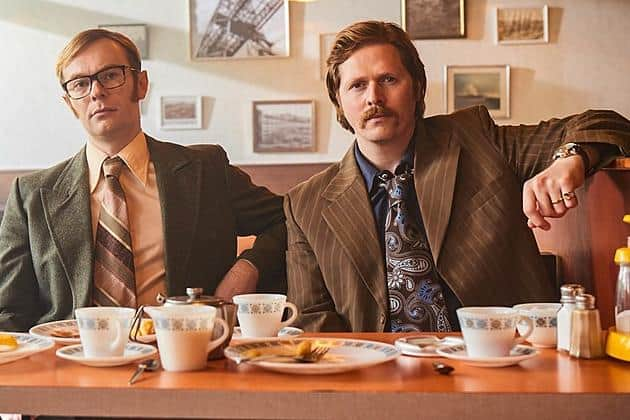Steeltown Murders review: You won’t find much justice in plodding true-crime drama


You know you're getting old when even the 1990s – just 10 years ago, surely? - seems like ancient history.
It was the decade when I hit my twenties, when I got my first car, rented my first flat, got my first job in journalism. A decade that seemed – at the time anyway, full of optimism for the future, of mobile phones and New Labour and Cool Britannia.
Advertisement
Hide AdAdvertisement
Hide AdJudging by true crime drama Steeltown Murders (BBC1, Mon, 9pm), however, you would have been forgiven for thinking the 90s was pretty monotone, dull and dismal.


Huge, off-white, boxy computers squat on desks, their baleful grey screens illuminating full ashtrays. Cars are small and angular, phones are connected to wires and nothing really seems to have changed since the 1970s.
That much seems clear as Steeltown Murders takes place in two different timelines.
The drama focuses on the investigation into a series of murders in and around Port Talbot, in south Wales.
Advertisement
Hide AdAdvertisement
Hide AdOne timeline features the original inquiry into the murders in the 1970s, when the M4 was being built, flyovers soaring over cowering terraced houses, facial hair was extensive and the misogyny was casual.


The second timeline is from the re-investigation in the 1990s, after new DNA evidence came to light.
Philip Glenister plays Paul Bethell in the 90s, put in charge of the new investigation, more than 20 years after he was part of the original probe into the murders of young factory girls Geraldine Hughes and Pauline Floyd. The new DNA evidence gradually reveals a link between their killings, and the murder of 16-year-old Sandra Newton, who had disappeared from a nearby village a couple of weeks earlier.
The problem with Glenister is that – as a policeman – it's hard for him to shake off the spectre of Life on Mars' Gene Hunt, the 80s copper with a penchant for an Audi Quattro, camel-hair overcoats and spaghetti hoops. As he drives around the valleys in his Saab – yet another iconic motor – you half-expect him to deliberately ram a pile of cardboard boxes or burst into a room shouting “you're nicked”.
Advertisement
Hide AdAdvertisement
Hide AdIt all gets a bit exposition-heavy, with Bethell and his long-serving colleague Phil (Steffan Rhodri) having to explain the case to their new recruit, along with the prevailing attitudes of the time.
“Because this girl was sexually active they took rape off the table?” he asks. “...Well a link should have been made right there and then.”
“They were looking for a serial killer and they just didn't know it.”
“Or they didn't want to know it.”
I mean, we get it, the 70s were a cesspool of sexism, racism and Victorian attitudes to women – we've already been shown that in the 70s-set sequences. We don't need to be told it as well.
Advertisement
Hide AdAdvertisement
Hide AdThe most powerful moment comes at the end of the first episode, when Bethell and Phil interview a Jane, a woman suspected of being raped by the murderer.
Her story is told in a quiet, calm moment which allows the words to properly hit home, giving voice to the victims of these appalling acts.
It's an unknown tale, that deserves to be told, it's just that this plodding drama does not do it justice. And it reminds the viewer that – judging by recent news stories - not much has changed since the 70s, or the 90s. The police still don't investigate sex crimes properly, and seem to be as much part of the problem, as the solution.
11 Minutes (BBC2, Weds, 9pm) was a powerful documentary looking at the mass shooting at a country music concert in Las Vegas in 2017, when a man with more than 20 guns killed 60 people and injured more than 400. Stylistically it's similar to Once Upon a Time in Iraq, so the subtext is of America as a literal warzone.
Advertisement
Hide AdAdvertisement
Hide AdIt you're looking for a break from – to paraphrase Winona Ryder – all this death, turn on the Giro d'Italia (Eurosport, daily). The weather hasn't been the best, but it's outstanding sport, delivered by knowledgeable, enthusiastic commentators and pundits who are terrific communicators.